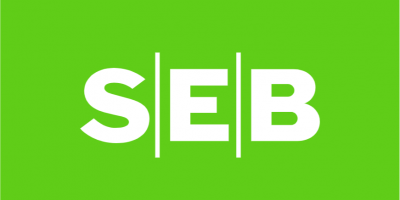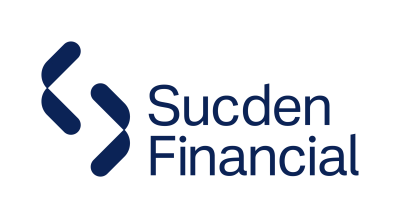TradeTech FX 2026
15 - 17 September 2026
Mövenpick Hotel Amsterdam City Centre + ij VENUES Amsterdam

TradeTech FX
Day Two

9:00 AM – 9:30 AM: In Conversation: How to embrace diversity and inclusion to enrich your workplace and make this your competitive advantage
Speakers: Julia Streets, CEO, Streets Consulting | Stefanie Holtze-Jen, Director, Chief Currency Strategist, DWS Group | Andy Maack, Head of FX Trading, Vanguard | Amanda Pullinger, CEO, 100 Women in Finance | Elke Wenzler, Head of Emerging Markets and FX, MEAG
• Diversity of thought throughout the capital markets is the key element to both increasing the level of inclusion/diversity and improving performance. There is currently a shift away from individual portfolio management towards a team-based management approach where a variety of input leads to better outcomes.
• Firms that want to increase diversity must start their work early. Going out to schools to show how the industry works and dispel the historic myths goes a long way towards changing perceptions about capital markets’ firms.
• Firms must also work to increase the visibility of diversity to foster the next generation of financial services experts by engaging with various working groups and events.
10:00 AM Keynote: FX Market Structure
Speakers: Andrew Hauser, executive director for markets, Bank of England
• Bank of England’s Hauser says it’s time for the buy-side to recognise and use its influence in the FX market to the full. He set out three ways for the buy-side to work together and play its part in evolving the FX market; by demanding better disclosures; seeking robust and independent analytical and execution tools; and signing up to the Global Code.
• FX markets continue to respond to hard economic and technological innovation. In the early days, we saw a concentration of liquidity provision amongst large incumbent banks, but more recently, some of those firms have exited or downscaled as returns have fallen. Business has also migrated from single dealer offerings, to multi-dealer platforms which allow users to put multiple chosen providers in competition on a single site.
• The Foreign Exchange Global Code should be high on the agenda for the CEO of every major asset management firm. Signing up deepens trust: between the buy-side and clients, counterparties and regulators. It also strengthens corporate governance by providing a blueprint for best practice within your firm.
10:20 AM In Conversation: The rise of the corporate treasury trader - How are corporate firms empowering themselves with the management of their own finances?
Speakers: Joseph Peka, deputy treasurer, URENCO | Alexandre Dube, head of financial markets trading, Total
• The difference between how corporate firms operate is highlighted by panelists, with one not particularly open to outsourcing or using external providers but more focused on adding value. While the other leans towards to using external providers for expertise in certain execution areas, as it goes through a change process. Both, however, tend to be more internally focused.
• In terms of counterparties, one of the panelists said his firm, which operates globally in many places, has around 130 counterparties in order to deal with niche or more local players for certain products. The other has a different approach, with around 10 bank counterparties which compete intensely for business.
• Panel agreed that algo providers have failed to engage with corporates in terms of what they want from algos. Corporate firms see a lack of interaction from algo providers and tend not to use them, but one panelist recognised that some of his peers do in fact use algos, but urged banks to move more into that space.
11:40 AM – 12:00 PM In Conversation: All you need to know about the Uncleared Margin Rules (UMR): How can you best prepare your business now to be on the right side of regulators and remain competitive?
Speakers: Paddy Boyle, Head of ForexClear, LCH | John Lund, Director, JXL Consulting
• UMR will come into effect in September 2021 after being delayed by one year by regulators due to a fear of a “big bang” amongst buy-side firms that would fall within scope of the regulations.
• Within FX, the main products that will be affected are Non-Deliverable Forwards (NDFs) and options, and buy-side firms are now moving towards clearing as a solution to UMR, particularly for NDFs.
12:00 PM – 12:20 PM Industry Perspective: The disintermediation of the traditional market structure – How has regulatory complexity, cost pressure and the need to differentiate driven firms to fundamentally re-evaluate they way they operate?
Speakers: Carl Slesser, Head of Business Development, Sell-Side Technology, Nasdaq
• The three main drivers of market disintermediation and change are regulation, increased competition among sell-side firms that are now also contending with new market entrants, and oversight, whereby firms are having to adapt how they run their businesses.
• The main technology developments affecting market change are APIs, which allow firms to find niches to be exploited, the cloud, which is changing how technology infrastructures are being managed, and big data, which is driving the development of AI and machine learning.
• As a result of these changes, sell-side firms are more likely to develop partnerships to succeed in changing market conditions.
TRACK A - 2:00PM Industry Perspective: How is Blockchain currently being applied to FX markets to make trading, clearing and settlement more cost efficient?
Speakers: Ajit Tripathi, partner, FinTech, Consensys
• Blockchain is like a brand, its a term for range of technologies based on shared ledgers. Bitcoin uses an internet-based shared ledger, but in financial markets we have multiple intermediaries, whereby banks maintain the ledger. The idea of Bitcoin was to have one ledger across the internet, which scared financial institutions because if this concept was rolled out in financial markets, where does that leave the banks?
• However, the technology has been adopted in back-office processes to reduce reconciliation. In theory, you could replace netting and automate the functionality of the central clearing counterparties using the technology. But issues around governance, standards and system integration remain a challenge for widespread adoption.
• Although institutions such as HKEX, ASX, JP Morgan, SiIX Digital Exchange, CLS and others, have used blockchain or are entering into the digital asset space.
























